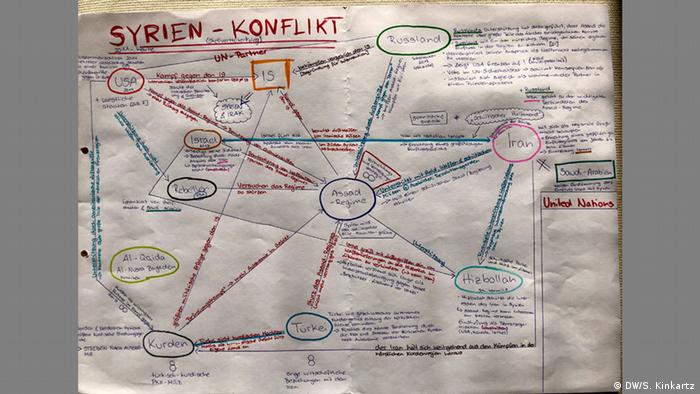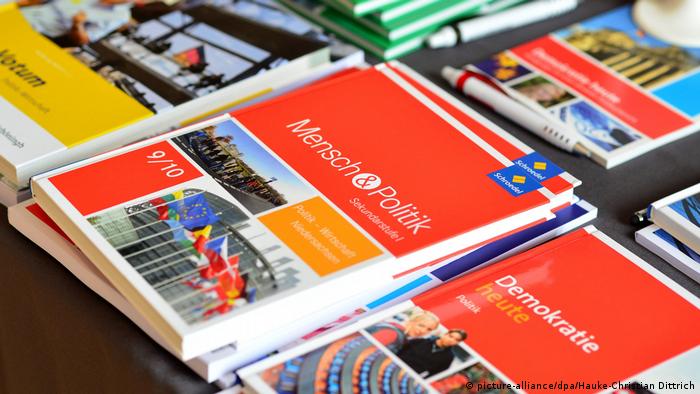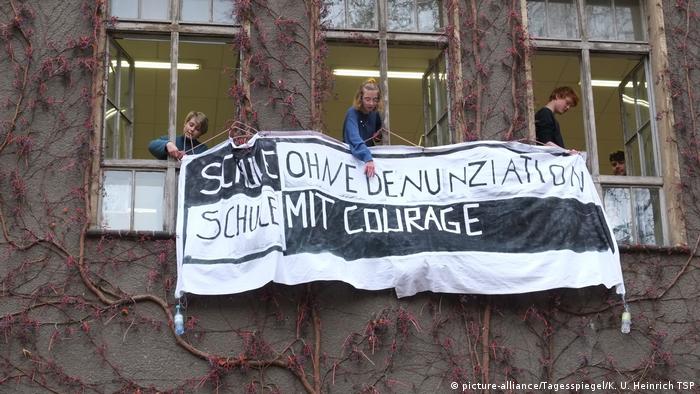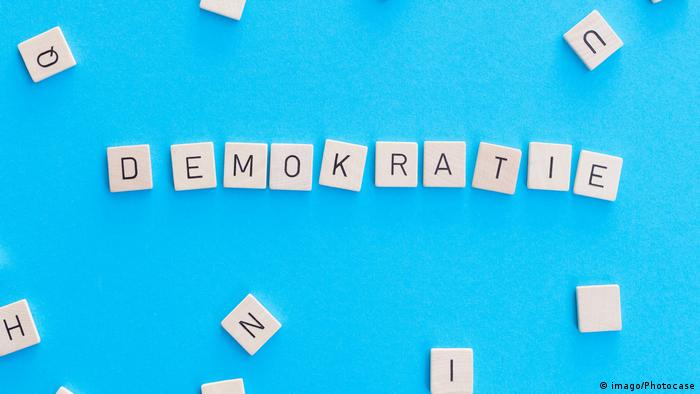Teachers should educate students to be upright Democrats. As a subject of policy, however, plays no big role. Teachers, but also students find it wrong. From Berlin, Sabine Kinkartz.

Students simulate the election to the Bundestag and discuss the result
Two leaves from a school exercise book has been glued to Louisa so that she has enough space to contain the fighting in Syria war parties on the paper in a graph. Who fights against whom and why? What is the role of Russia, the USA and Iran play? The Syria war is the subject of a written exam, which will write to the 17-Year-old in the performance of trade policy.
It’s about the balance of power in the world. Louisa has to deal with concepts apart, she has never heard. “Proxy war” is one of them and the “world’s policeman”, as the USA was called for decades before, US President, Donald Trump came, and with it the “America first”. The fabric captivates the student. He is currently elusive. “If I hadn’t chosen policy, I’d know everything,” says the high school student.
Politics is not a compulsory subject
Which student how much political education would collect depends, in Germany, where he goes to school. Each of the 16 Federal States decide for themselves. In Bavaria, the political education, with a 0.52 per cent has the lowest proportion of the curriculum. In Hessen, however, it is actually 4.38 per cent – according to a study by the University of Bielefeld. Politics is taught only in the tenth grade, time from the fifth to the ninth.

Who is fighting against whom in Syria and why?
In many places, civic education is part of the teaching of history. The ancient’s turn, the students learn something about the beginnings of democracy. “Up to the upper level, the students have to do with the current socio-political issues and events,” says a teacher who taught for twelve years in a Berlin Gymnasium. We call him Martin Müller, he is to remain at the request of the school administration anonymously. To heated the topic of political education is currently.
It frightened him how little pupils even at the age of 17 or 18 years from the current policy, know, criticized Müller. When he was in the upper level of the government parties asked have, they would have the CDU nor the majority: “But who the coalition partner is, knew more than half of them.”
“Our children are in need of political skills”
Parwin Mani was Born in 1961 and is a mother of three sons, remembers that she had as a student a little idea of politics: “But those were other times.” Today, the world is in a mess, everywhere, increasingly populist would be the best for the Power grab: “Our children need a political tools. You need to know what happens, so that you can make in time a clear opinion.”
Your son Julian has no policy lessons. On the question of who ruled in Germany, he calls the Green and look to enter when he hears that the answer is wrong. He would like to know, he says, but in his schedule there was no space left for the choice of trade policy. “This should really be mandatory”, he regretted.
Facts, Facts, Facts
Democracy is in all the school laws a Central theme, even if the formulations are different. In Bavaria, for example, the students should be “for the liberal-democratic and social state of law and to be brought up in his defense to the inside and the outside”. In Berlin, it means you should be able to oppose the authoritarian ideologies of “self-consciously and deliberately”.

Policy competes in the classroom, with many other subjects
If a teacher Müller dealt with the parties in the classroom, you need to analyze the students, the party programs and critically discuss. “At the AfD you will find points that contradict the fundamental democratic consensus, for example, the principle of equal treatment of all people,” he says. “Or discriminatory points, which are incompatible with our democracy.”
Must tell a teacher what he thinks?
Opinion is asked by the teacher. “How should I convey the judgment of education in a credible, if I would be banned, even in a position to obtain a verdict?”, Müller asks. “Of course I do, I must look authentic.” In any case, he could collect but his opinion about the scale and the students indoctrinate: “policy is a bit Controversial, therefore, it would be the worst, if the school would ask for a default judgment on the part of the students.”
Teachers tell their opinions, the tastes, the right-wing populist AfD, not at all. She claims that the policy lessons to be politically aligned to the left. “You will find in teachers a critical attitude towards the AfD,” complains the Berlin state Chairman of the party, Georg Pazderski. In Online portals, the party is calling on students and parents to report teachers who receive teaching political position.

At a Berlin high school student protest against the AfD-registration portal
A “witch-hunt”, says Martin Müller. That teacher would have a political neutral, was “nonsense”. Nevertheless, the reporting portal has poisoned the mood. Therefore, the school wants to be informed, to the Miller, not named.
The back cover of the policy
The location is actually clear. The conference of Ministers stipulates: “If a student in a discussion of the points is not to Express that with the basic free and democratic order and human rights are compatible, may a teacher leave, this is not uncommented, or unreflective.”

In Berlin, students, parents and teachers have protested for nine years and achieved that policy levels, is now in the class of seven will be taught to ten. One hour a week is approved. In addition, political education should be continue to in passing in other subjects.
Training
Many teachers are not trained. In a study by the Bertelsmann Foundation, only 16 percent of the teachers reported during their studies intensively with democracy-education and training of employees. 95 percent said that the teaching of democracy in education to a subordinate role.
Student Louisa finds this wrong. She is glad to have for the policy chosen, even if the subject demanded of her a lot of work. “Art would have been easier,” she says, and grins: “But for a long time is so exciting.”